Ecological Epistemologies
Josie Beardsmore (RA)
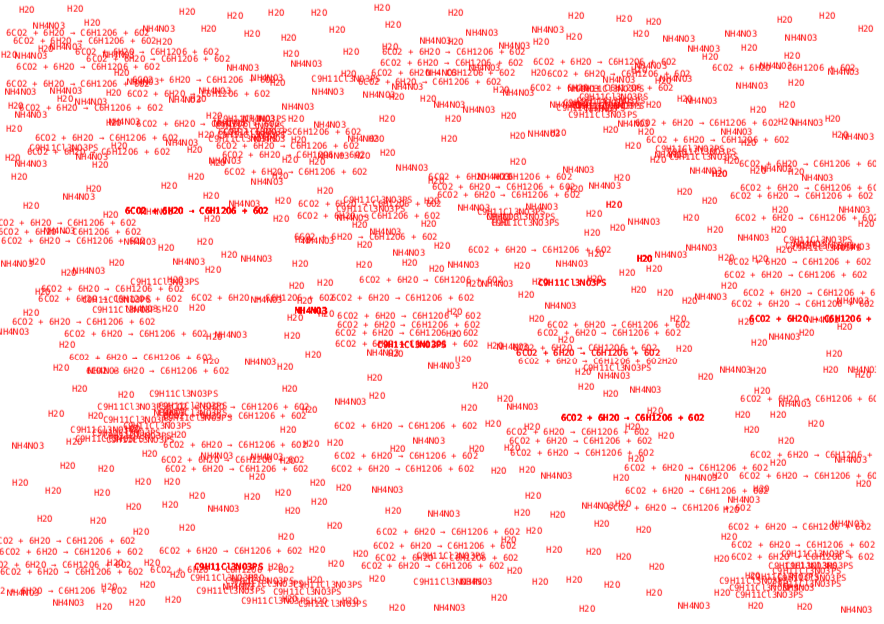
Invasive
species have caused irrevocable damage in ecosystems across the world. Usually,
this is due to the interference of humans. The Golden Apple Snail is one such
species that have found themselves in new lands. They find themselves
intertwined in capitalist systems because they are bred as pets and for food.
Their invasive success illuminates the cracks in the global economic
structures. Through understanding a multi-species embodied experience, this
project aims to challenge our preconceived ideas about ecology. I see the
Golden Apple Snails as a companion and use this new knowledge to construct an
alternative framework for ecology.
Technologies of Immigration Bail
Woodren Brade (RA)

This research investigates how the
technologies used through immigration bail hearings expedite the system of
incarceration and deportation. I have been scrutinising immigration bail, to
examine the wider infrastructures circulating around the law that are also
operating in the production of legal decision making and become consequential
in the legal scene. Although bail is overlooked as a legal
event, its weight to the individual implicated, is vast, bail can be seen as a pivot which reorganises the wider trajectory of
harm. This research pays attention to the multitude of factors that
become important in the experience of someone facing bail which the law deems
inconsequential. Highlighting these moments in order to put focus on the
significance of the insignificance of bail.
Pulmonary Politics: Breath(lessness) as an Inventory of Traces
Séverine Chapelle(RA)
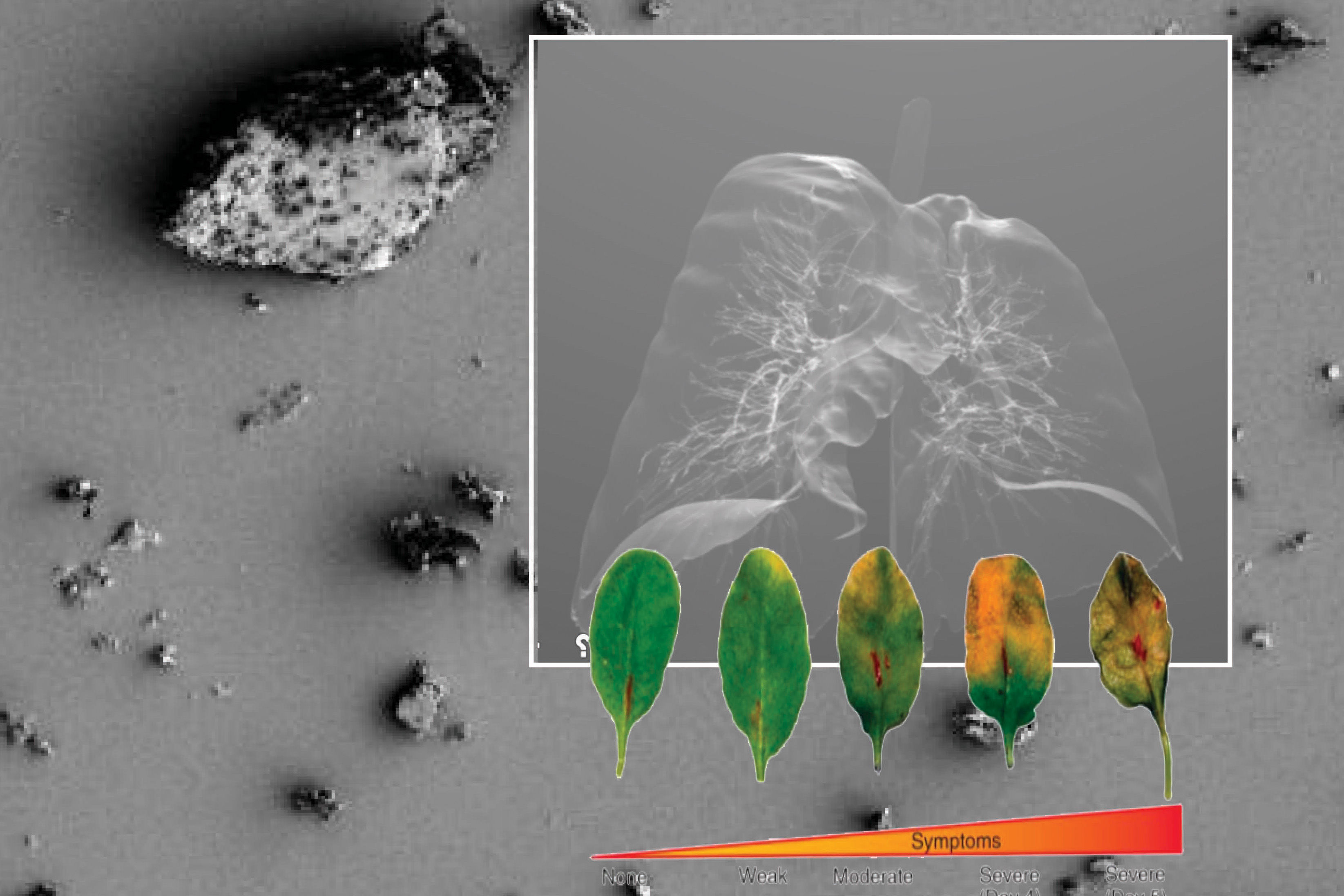
My
research tries to articulate how the atmosphere comes to be registered as a
pulmonary condition and bodily-difference as both politically and
environmentally produced. I therefore examine how the structural forces shaping
urban atmospheres and knowledge production around health, disease and
atmospheric gases come to compose and differentiate not only lungs, but also
the visceral experience of breathing itself. I hope to trace how a body's
capacity to obtain oxygen is nested in microclimates induced by histories of
structural violence, current ecological transformations and atmospheric
entities.
Bodily Infoscapes
Ayana Miyuki Enomoto-Hurst (FA)

The
public sphere has been digitally calibrated as a space that disregards
geospatial proximity while at the same time mirroring its imperial arrangement;
informing flows through and about space. Western utopian and dystopian domains
have historically personified modernity’s precarity through the use of asian
subjectivity. Leaning into this racializing notion of techno-orientalism
imparts a cartographic lens for mapping this geo-virtual landscape. Approached
as a metaphor, fluid object, and processor, I attempt to trace the circulation
of the body from sex laborer through its virtual iterations and subsequent
moderations. As an investigation to the intersection of racial and gendered
mobility through technological space.
Suspended Death: Detention of Palestinian Bodies in the Cemeteries of Numbers
Omar Hmidat (FA)
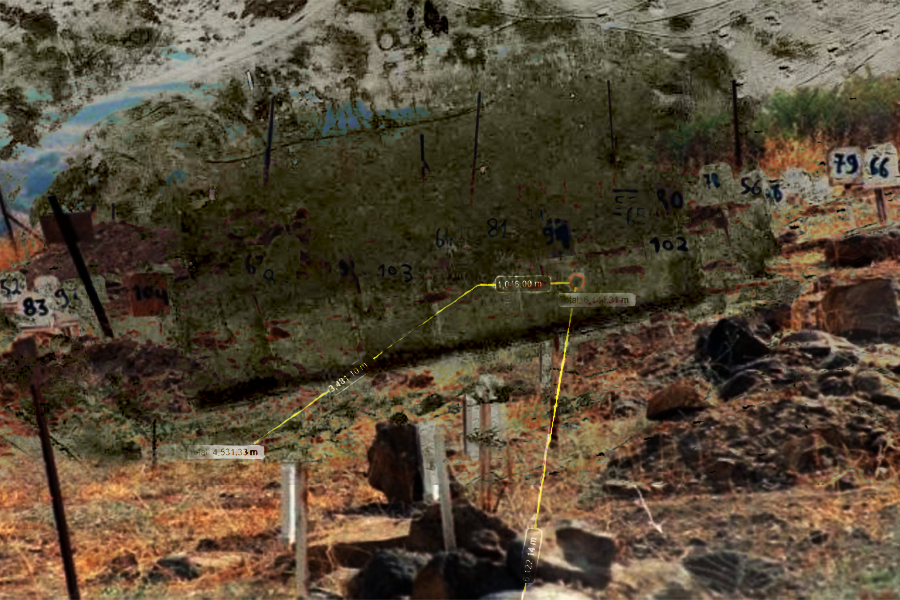
Since late
1969, the Israeli Occupation Military have detained an unknown number of
Palestinians and Arabs bodies in clandestine burial sites in militarised zones
called Cemeteries of Numbers, Makaber al-Arqam. This research seeks to trace,
detect, and unpack the different historical, political, legal, spatial, and
territorial arrangements of the cemeteries, and the framework that renders the
sites abstract and the corpses dis-appeared, but also looks at the Palestinian
rituals of mourning and social and political solidarity. Methodologically, I
mobilise discursive media review, geolocation, sensing techniques, and engage
ethnographic fieldwork through open-ended interviews with the families of the
“dis-appeared” and political activists.
Extended Circulations: Electronics Repair as Transitional Practice
Kiki Mager (RA)

Electronic
waste has been studied as fastest growing waste stream through concepts of
over-consumption and toxic waste colonialism. Building on their knowledge, Extended Circulations turns an e-waste
lens onto repair infrastructure in waste producing contexts. Official
legislations cite repair as
prioritized waste-prevention strategy, but a lack of representing existing
repair infrastructure in studies and policy papers suggests otherwise. Filling
this gap this work reverse-engineers conditions of electronics repair framing repair as transitional practice
towards less-extractive material worldings. Legal grammar, logistical
mechanics, and regional politics at play are examined for how their normative
assumptions disrupt potential extended
circulations of digital devices and their components.
Plot Dialogues
Andrea Macias-Yañez (RA)
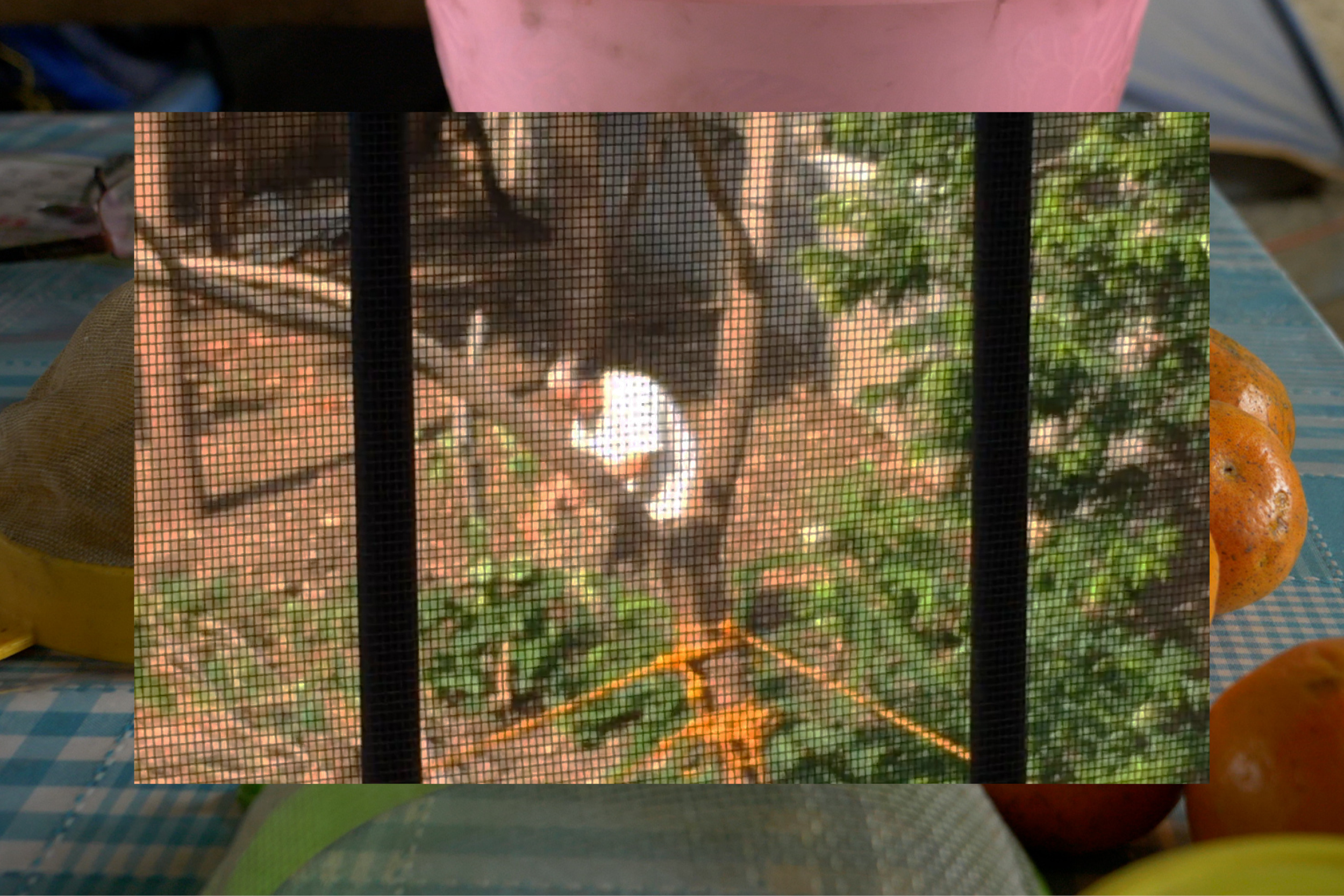
This
research amplifies and puts into dialogue the structures of governance,
communal land holding, land cultivation and narratives via the lens of the
minor. Located in Chiapas, Mexico, I explore how the historical conditions of
coloniality, political refusal and soil microbes are interwoven forces in
continuous conversation with the gentle gestures of tending land in agrarian
contexts. In this marginal zone, political agency rubs against economic models
of progress through the slow but consistent embodied knowledges applied in
cultivation. Script writing and film become active methods to weave these
various scales—to emphasize that quotidian life cannot be easily reduced,
divided or representationally conquered.
Ecological Epistemologies
Marvi Mazhar(FA)
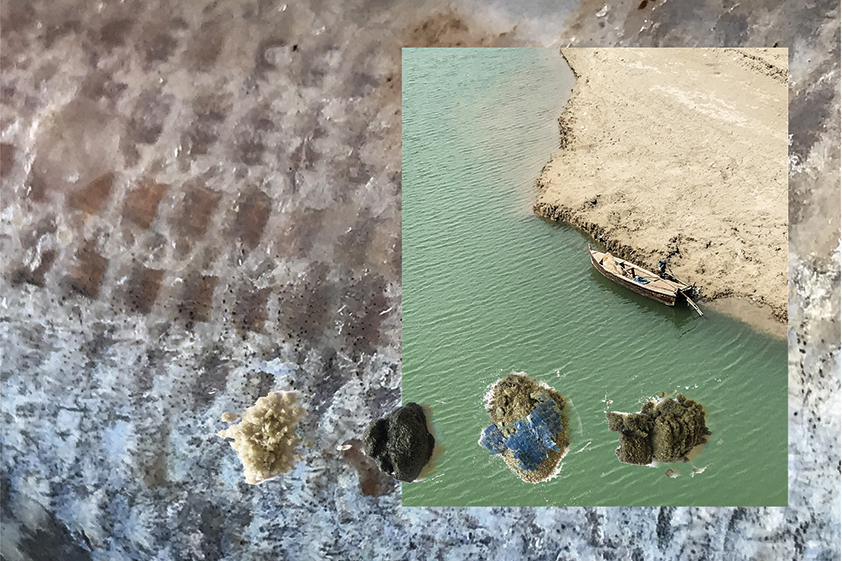
Karachi
exists today perhaps in one of its most fragile ecosystems. Investigating the
spaces between land and sea- the coastal urban periphery, within the complex
layers of the vast urban metropolis. Developing different spatial temporalities
of Karachi’s growing scape, understanding lands relationship to sea, saline
water meeting fresh water in the estuary, real estate extending outwards beyond
the coastal edge, conceptualizing fishing villages into grid-based housing
societies. Analysing colonial coastal capitalism, and archival referencing, the
act of making of a land or the process of reclaiming land as a political
extension of states power and economy and the ecology extends into decay and
disappearance of lesser voice- the impact on human and non-human activity.
The Battle for the Den: Unravelling the Real Estate State in South Bermondsey
Ross McKendrick (RA)

In October 2019, after a 3 year-long legal battle, situated within a
wider conflict spanning 16 years, Lewisham Council voted to expunge a
Compulsory Purchase Order which would have seen land leased to Millwall
Football Club sold to developer Renewal. This didn’t mark the end of this
ongoing conflict, however, as the processes underlying this imperative for
development still exist, and are rapidly gathering pace in Renewal’s New
Bermondsey scheme. This project sets out to understand these processes as constitutive
of the Real Estate State – an urban
economy structured in such a way that the state grants inordinate amounts of
power to institutions and entities which are committed to fixing capital in
various spatial forms through their so-called regeneration. Through a variety
of methods ranging from the investigative to legal intervention to artistic
practice, the project aims to open a space in which those most at risk of cultural erasure in
the area can put forward their vision for the future of the area, and forge
connections which can take existing campaigns, both within South Bermondsey and
beyond, forward.
Landscapes of Incarceration
Lou Moria (RA)

Walls, fences
and barriers are an inseparable part of the landscape between the Mediterranean
Sea and the Jordan river, limiting and controlling Palestinians movement while
enabling other materials to move across those borders undisturbed. Carefully
planned systems of subterranean infrastructures; authorities turning a blind
eye; lists of dual-use materials; orders, and laws are all part of an apparatus
where seemingly separated case studies are linked by Israel’s control and
occupation systems. My research follows the material circulation across
Israel's borders with the West Bank and Gaza, and how it is transforming the
environment, expanding the landscape created by incarceration far beyond the
immediate border’s sphere.
The Creation of a Tearing Artefact: On Sounding Terraformation
Natalia Orendain del Castillo (RA)
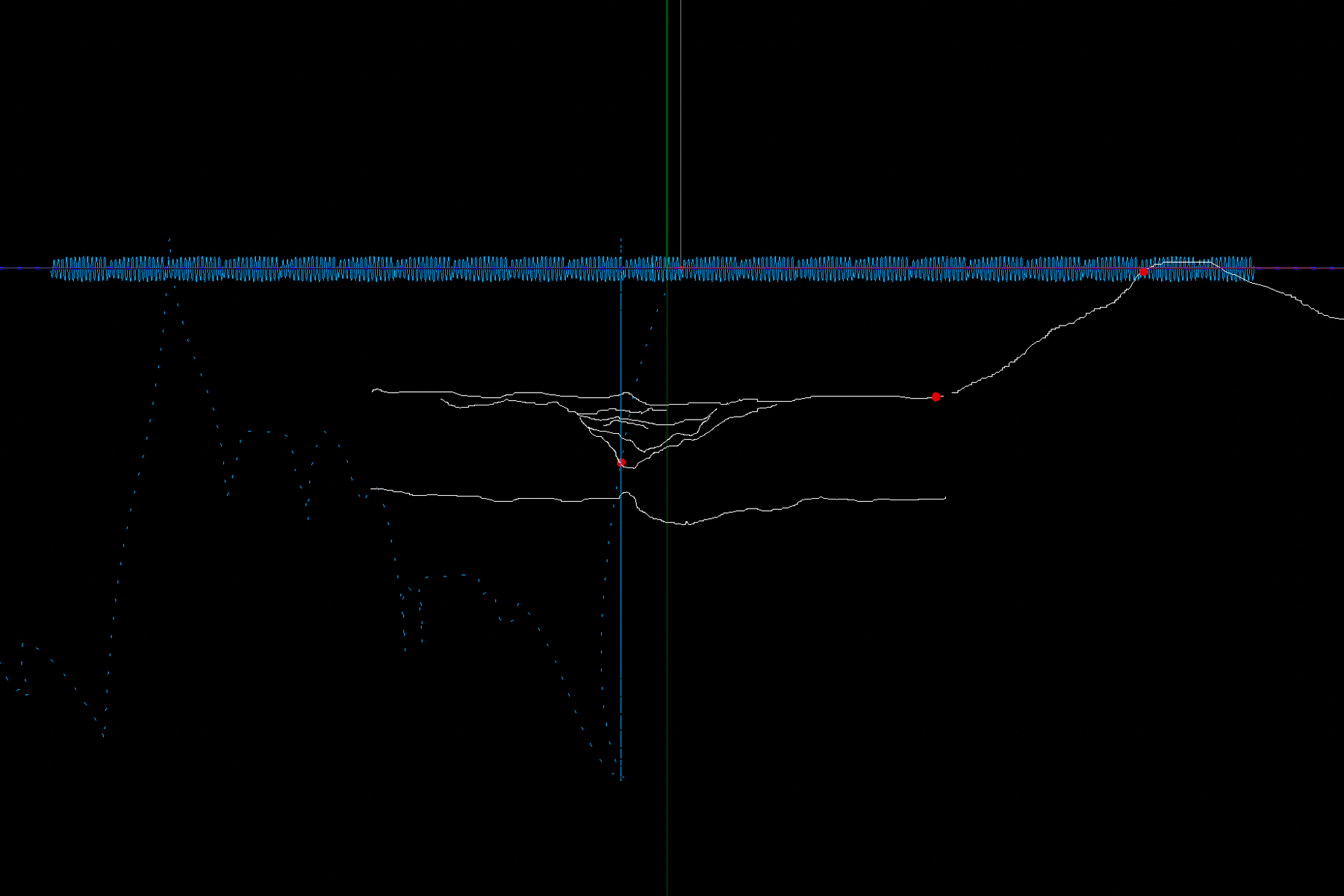
The Goodwin Sands is a large bank of
shifting sands off the coast of Kent on the English Channel. A Marine
Conservation Zone containing thousands of shipwrecks, its dynamic nature has
been the justification for a large dredging permit for Dover Harbour. How
are such complex ocean systems being sensed and modelled, in order to be
managed? How can we map and speculate on a site that is constantly moving? There seems to be a need to find
alternative aesthetic forms, and instead of representing the sands through
the fiction of isolated survey data, understand them as a topological
space, full of relationships, more-than-human reactions, rhythms, flows and
other planetary conditions which produce them.
Psychopolitical Semiologies: The alt-right Regime of Signs
Imogen Piper (RA)

The alt-right is an ideologically incohesive yet semiotically coherent movement.
The political signifiers they use to convene and converse play a crucial role
in the production of a collective, identitarian subjectivity. Psychopolitical
Semiologies emerges from the decision to re-inscribe the alt-right as a regime
of signs, proposing a semiotic means of investigation that places attention on
the modes, mediums and machinics of discourse rather than solely on the
message. Utilising theoretical and diagrammatic strategies from
post-structuralist philosophy and psychoanalysis, this research seeks to
explicate the heterogeneous systems and economies of desire that have lead to
the proliferation of certain political signifiers, the subjectivation process
and the resultant mainstreaming of extreme identitarian politics.
Demolishing Negligence: The Urban Transformation after the 2017 Earthquake in Mexico City
Miguel Ramos (RA)
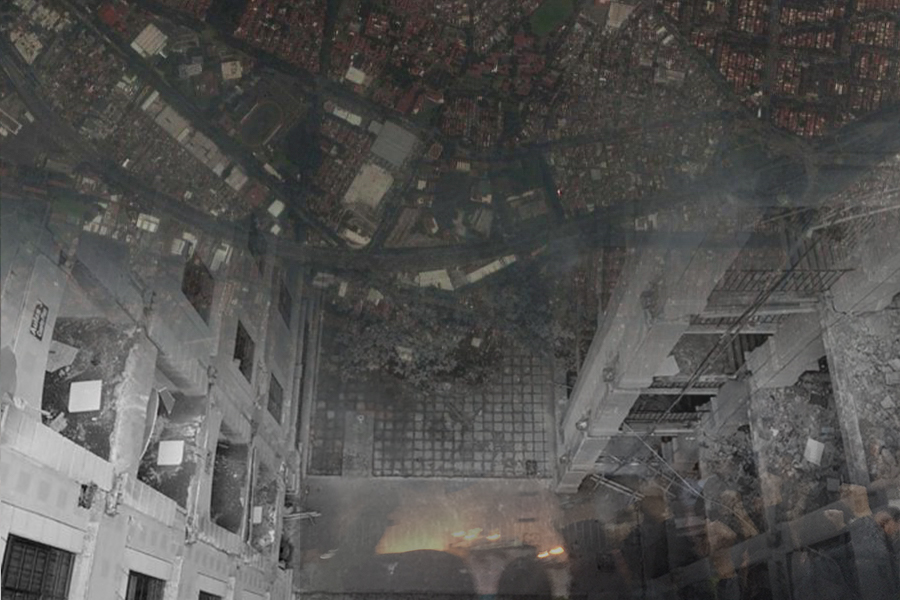
On
September 19, 2017, a 7.1 magnitude earthquake struck Mexico City. The natural
disaster opened a state of exception where the structural powers over the city
catastrophized the event and transformed the urban environment. The demolition
of architectural infrastructure after the collapse caused during the seismic
movements highlighted the negligence in the construction processes and in the
attention to victims, and questioned the role of memory as a form to demand the
right to the city after the catastrophe. As a node of this dynamic, the urban
transformation of a private university campus located in the south of Mexico
City is scrutinized after the autocratic decision of demolishing 10 buildings
that integrated the campus.
Techno-Celestial Skies
Giovanna Reder(FA)

This
research is an attempt to reframe the perception of the sky not as a void
merely interrupted by weather phenomenons, but as a newly structured and
surveilled volume that is increasingly weaponised. It contemplates how aerial
surveillance and the enclosure of the sky impacts people crossing borders in
the Mediterranean. By mapping the current and future enclosure of the sky above
the borderzone, this project tries to critically rethink the vertical as a
hostile environment by looking at aerial witnesses and their disembodied ways
of seeing. It will investigate and depict the emerging policies of distance and
the alternate atmospheres they construct.
(In)Audible bodies; Re-cognising Multispecies Listening
George Ridgway (RA)

As global
sound levels increase and ecologies unravel, listening to sensory pollution across
a multispecies paradigm is a demand to refigure where and how auditory bodies
exist. By attuning to situated practices of listening, with ecological
conservation in the UK, with the science of acoustic ecology, with emerging
acoustic technologies and with human and non-human entities, the research aims
to interrogate and archive how sonic boundaries and forms of inscription
pattern matter and sense. I argue that
within the figuring of these sonic patterns is a space where climate change and
ecological fragmentation can be cognised. A space always subject to the
reverberations of extractive colonial and capitalist frameworks and their
violent homogenising affects. Yet a space that also offers opportunity to
listen with others and in doing so problematise dominant spatial imaginaries
and propose alternative forms of sociality.
Politics of Squatting
Ana López Sanchez-Vegazo (FA)

During
the summer of 2020 in Spain a wave of news emerged alarming about the
increasing danger of house occupations during the period of the pandemic.
Advertisements from private alarm companies surfaced in the media with messages
about squatting alarm equipment. A specific area against squatters was created
in the City Council in Madrid, and several law proposals against squatters
appeared all around the country. In this context, this research seeks to
investigate speculation and the housing crisis through the criminalizing of the
squatter’s movement in Madrid and Barcelona during Covid19, to understand
dwelling struggles through real estate market structure and the touristic model
of Spain.
Making Sense, Sampling Uncertain Thresholds
Caterina Selva (FA)

This research explores the politics of oil extraction and
perceptibility in the region of Val d’Agri, in the south of Italy. It focuses
on the circulation of matter by considering the translation into knowledge of
entangled spatial phenomena. The research stays with the data gaps produced by
the rift between ‘normal science’ and monitoring as tools appropriated by
corporations, and the forms of science that are mobilized by citizens that
attempt to make sense of
environmental degradation and claim rights. By giving visibility to the
epistemological struggles around damage and thresholds of harm, I try to make
intelligible what does not have sufficient evidence, and to support new
alliances in resisting one sided forms of geological dependence.
Automating Bureaucracy: Black Box Futurity in the UK’s Hostile Environment
Sanjana Varghese (FA)

Under
the veneer of techno-solutionism, the UK is seeking to move to a digital by
default immigration system, drawing from an ecosystem of migration management
technologies, ostensibly to reduce bureaucratic backlog and reliance on paper
documents. This ongoing material and spatial shift from papers, forms,
documents to cloud-based software and databases underpins the ways in which
technophilic policy making produces an alibi for precarity and violence. This
research seeks to examine and deconstruct 'black boxing' processes in this
bordering assemblage, through forms of counter-mapping and investigative
research that trace the complex network of private firms, government
departments, state bodies, organisations and technologies which comprise these
databases. It will examine two specific immigration databases - one under
construction and one already in use - to demonstrate how supposedly neutral
automated processes of information collection and classification reproduce, and
generates dispossession and in the way that bureaucratic outcomes already do.
Aerial Starvation Warfare
Nikki Vieler (FA)
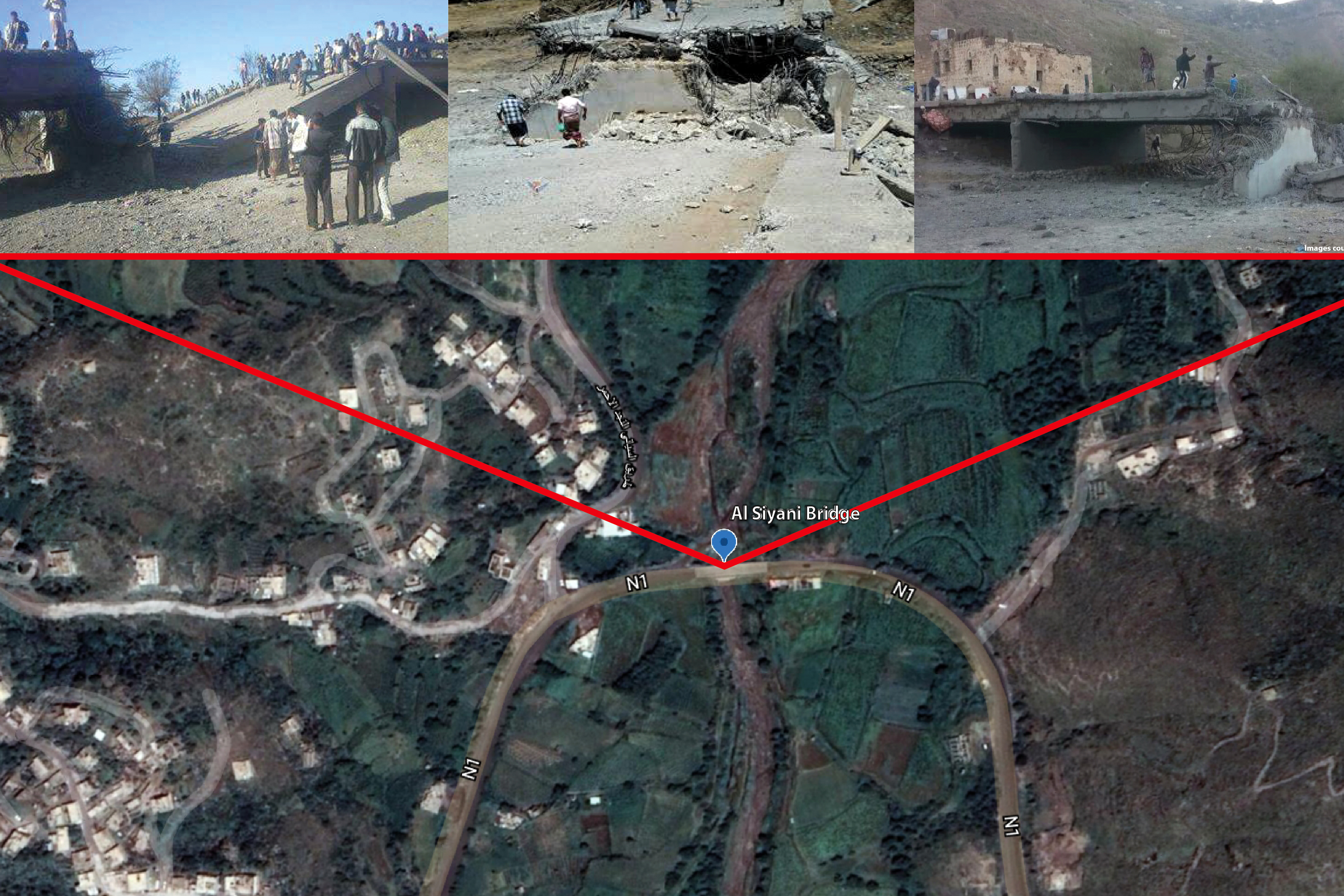
During
the Saudi-led coalitional intervention of Yemen (2015-present), aerial strikes
were conducted on infrastructure, in particular upon various bridges. The
bridges targeted by military strikes were civilian objects which have been disproportionately
damaged. The bridges are of vital importance to transportation and distribution
of food amongst the Yemeni people. The attacks on the bridges can almost
certainly be considered violations of international humanitarian law. The
consequences and starvation of Yemeni’s through the destruction of these
bridges, can also constitute war crimes or crimes against humanity. This
project investigates some of these attacks (such as the Al Siyani Bridge).
Scaling the Metric Mindset: Metric Supremacy, Carbon-centricity, and Climate Contingencies
Ollie Zhang (RA)
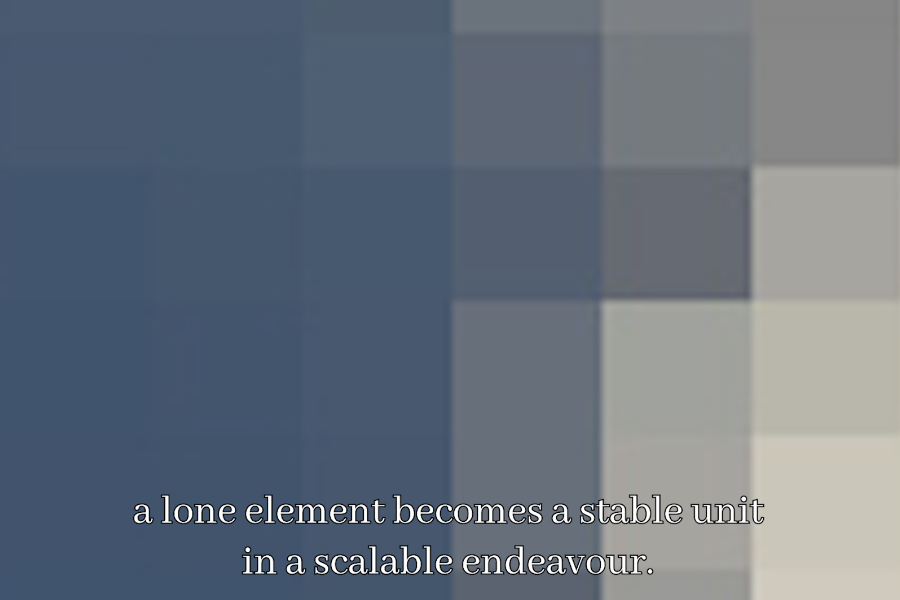
Scalability is the ability to expand without encountering transformative relationships. Scalable endeavours erode alternatives and diversities in their wake, ignoring friction and complication. The last century has seen the expansion of the metric gaze via national income accounting and now carbon accounting. This gaze sees in poor resolution, reducing complexity into stable units ready for scaling. My work considers the rise of metric supremacy, and the carbon-centric climate politics it produces. I turn a critical eye towards carbon accounting, considering the measurement of atmospheric commons, enforced commensurability, and the construction of spatial fungibility.
Haunting Assad’s Syria: Etymologies of Compliance and Dissent
Leila Sibai (RA)

By looking into instances
of state mass violence taking place in Syria since 2011, this research explores
the relationship between body, voice, and violence, while examining the role of
language in registering events, conditions, and the imaginary it reinforces.
The first part looks into governmental practices and apparatuses which have, as
their rationale, the production of uniform political subjectivities and
examines the mechanisms through which they hold the potential to nullify
dissenting voices and generate a dominant narrative. Using hauntology as a
guiding concept, the second part explores ways in which a return to Arabic
etymology and grammar can be generative of new connections and create cracks in
the dominant narratives. In translating to and from Arabic, this research
practice attempts to develop linguistic and performative strategies to
challenge established power dynamics by activating the transformative potential
of language in connecting the self and the collective.